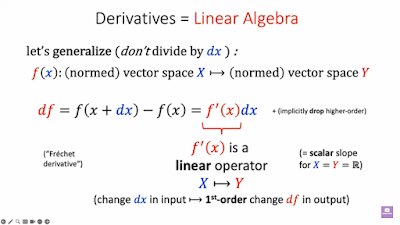Curt Jaimungal, David Albert and Naftali Weinberger Talking About The Character of Physical Law
You said rather a lot but I don't think you mentioned experiment once. Ernst Mach had an idea which was that physics should concentrate on describing the experimentally observed phenomena as accurately and succinctly as possible. Then it turns out that the succinctness criterion serves as a kind of explanation in the sense of that Wigner quote about particles and groups (thanks, I'd never heard that before). So you just need an empirical basis for the least action principle and a relativistic invariance principle to get the symmetries, and then Noethe's theorem gives you a necessary reason (i.e. an explanation) why space is three-dimensional: it's because each degree of freedom requires two independent pairs of conjugate variables if you are going to have a well-defined notion of entropy in the configuration space. That's just for example (see Gabriele Carcassi's video on this.) But there are a lot of ways that the experimental method constrains the types of laws that can be observed: every experiment involves describing some preparation of a laboratory state and the conditions under which that state evolves and predicting the measurements that are made at subsequent times and places. Then we take these regularities from the laboratory and match the abstract conditions they describe with actual ones we see in the real world around us, which is often quite a complex process involving more measurements to "transduce" observables from the world outside and into the laboratory reference frames, and sometimes we can then "explain" the phenomena we observe in the world as being caused by those laws. But they are only caused by those laws when the conditions match the ones the experiment abstractly describes, and that is always some personal judgement made in the act of observation. So as to what "causes" the effects: it is as much the knowledge of the laws and the observations of the actual world in so far as it corresponds to the conditions the laws describe that is the reason why the laws work as it is anything actually out there in the real world. That's my two cents inspired by Carcassi, Rovelli, Fuchs and others.
Rovelli and Adlam have this idea that information needs to be recorded physically in some thermodynamic state in order to have any meaning so that that thermodynamic process in human brains necessarily becomes part of the loop and drives the choice of experiments physicists make. So experimental agency is part of the evolution of the Universe as a whole. It sounds really interesting.
[I should try and answer the question (14:55) "Why do physical laws have the form that they do?" because they're the laws that are tested by experimental observation: universal laws are just the things that happen only because there's no particular reason why anything else should happen. So it's in that negative sense that there's nothing to explain, as the QBists apparently say, though I think they have actually explained rather a lot!]
Subscribe to Curt Jaimungal.
This appeared this morning: Fundamental Laws of Physics and the Idea of Agency
I have to admit that I kind of "wiped out" when asked to imagine (14:10) "Some sensible algorithm for evaluating counter-factual conditionals"! But I suppose that since one has implicitly already swallowed the idea of The Mentaculus, (11:56) it's not too much more to ask. I wonder what Roger Penrose thinks about this argument? See Another Curt Jaimungal Interview With Roger Penrose.
26:59 I'm not at all sure how what I wrote above fits into this picture of a causal model. There seem to be some intriguing possibilities of explaining classical entropy limits in terms of exogenising operators on the macroscopic thermodynamic state of a universe accumulating records of information as physical knowledge increases (i.e. with the passage of psychological time). See Emily Adlam on Her Book "Saving Science from Quantum Mechanics".
Subscribe to Hopkins Natural Philosophy Forum.



Comments
Post a Comment